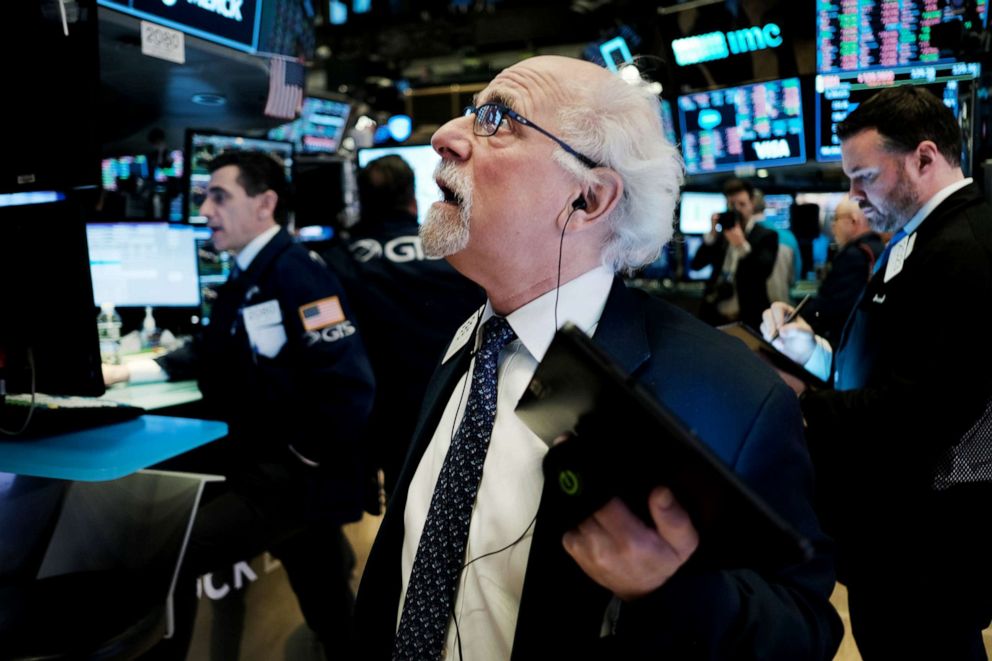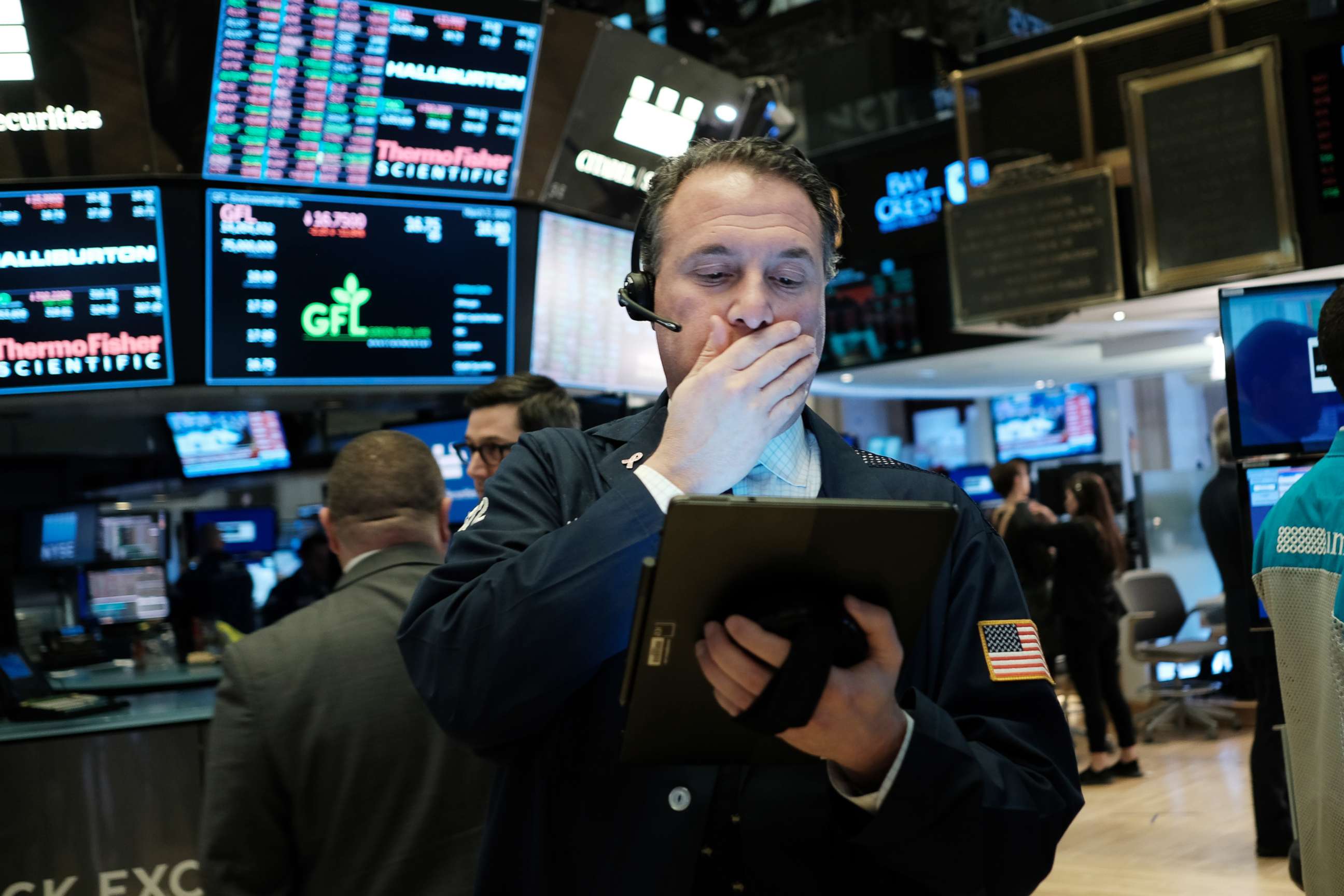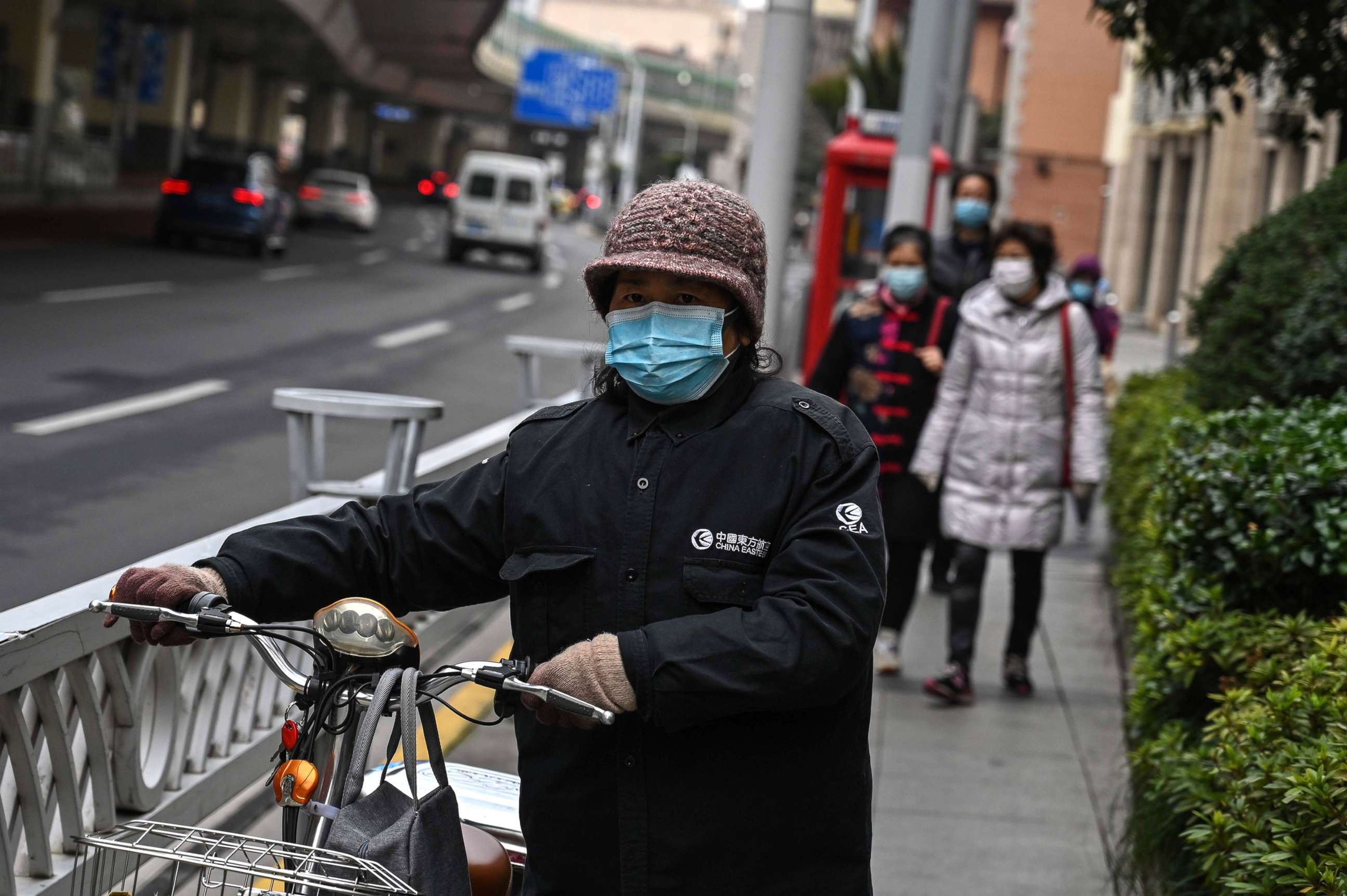Dow plummets despite Fed's emergency rate cut over coronavirus
Citing the risk of coronavirus, the Fed announced a rate cut Tuesday.
The Federal Reserve announced a surprise rate cut of half a percentage point on Tuesday in an effort to mitigate the economic impacts of the coronavirus outbreak on the U.S. economy.
Despite that emergency cut, the Dow Jones Industrial Average plummeted by 785 points by the time markets closed Tuesday, or 2.94%. The S&P 500 and Nasdaq each also tumbled by 2.81% and 2.99%, respectively.
Last week, the Dow suffered its worst week since the financial crash of 2008. Markets rallied sharply on Monday, possibly on the hope G-7 finance ministers would take policy action to mitigate the economic impacts of the outbreak.

"The fundamentals of the U.S. economy remain strong," said a statement Tuesday from the Federal Reserve. "However, the coronavirus poses evolving risks to economic activity. In light of these risks and in support of achieving its maximum employment and price stability goals, the Federal Open Market Committee decided today to lower the target range for the federal funds rate by 1/2 percentage point, to 1 to 1‑1/4 percent."
"The Committee is closely monitoring developments and their implications for the economic outlook and will use its tools and act as appropriate to support the economy," the statement added.
The rate cut was announced after weeks of economic uncertainty surrounding the outbreak of the novel coronavirus sent global financial markets reeling.
It also comes after pressure from President Donald Trump, who called for a rate cut on Twitter.
The Fed has us "paying higher rates than many others, when we should be paying less. Tough on our exporters and puts the USA at a competitive disadvantage. Must be the other way around. Should ease and cut rate big," the president wrote on Tuesday, before the cut was announced.
Trump responded to the news in a separate tweet, calling for even more action.
"The US Federal Reserve's decision to cut its benchmark interest rate by 50 basis points is an effort to offset the economic disruption and financial volatility caused by the global spread of the novel coronavirus," Moody's Investor Services Managing Director Atsi Sheth said in a commentary Tuesday.
"We expect similar efforts by monetary authorities around the world, with many governments also likely stepping in with fiscal stimulus as well," Sheth added. "Nonetheless, until the virus is contained, we forecast that global economic activity will slow materially."
World finance leaders from the Group of 7 nations also held a call Tuesday led by Federal Reserve Chair Jerome Powell and U.S. Treasury Secretary Steven Mnuchin. They issued a rare joint statement saying they "are ready to take actions" and will "use all appropriate tools" to support the global economy amid the outbreak of the novel coronavirus -- though they failed to outline any concrete steps they were taking to cushion the economic blow of the outbreak.

"Given the potential impacts of COVID-19 on global growth, we reaffirm our commitment to use all appropriate policy tools to achieve strong, sustainable growth and safeguard against downside risks," said the statement from G7 finance ministers and Central Bank Governors. "Alongside strengthening efforts to expand health services, G7 finance ministers are ready to take actions, including fiscal measures where appropriate, to aid in the response to the virus and support the economy during this phase. G7 central banks will continue to fulfill their mandates, thus supporting price stability and economic growth while maintaining the resilience of the financial system."

The Organization for Economic Cooperation and Development called for urgent government action to aid the economy amid the outbreak on Monday, and slashed its global growth outlook for the year.
"Governments need to act immediately to contain the epidemic, support the health care system, protect people, shore up demand and provide a financial lifeline to households and businesses that are most affected," Laurence Boone, the OECD's chief economist, said while presenting the findings during a teleconference Monday.
The COVID-19 outbreak has also delivered a major blow to economic activity in China, the epicenter of the outbreak and the world's second-largest economy.




